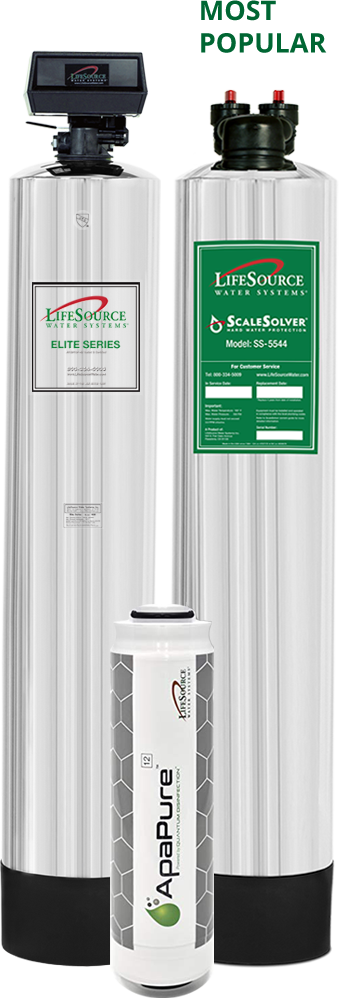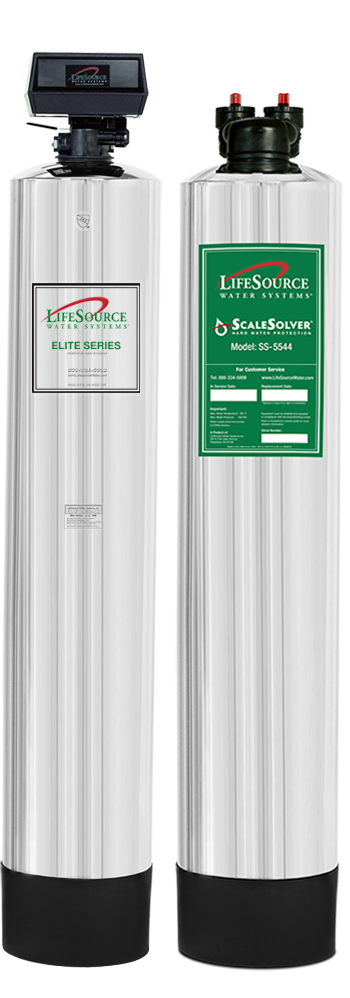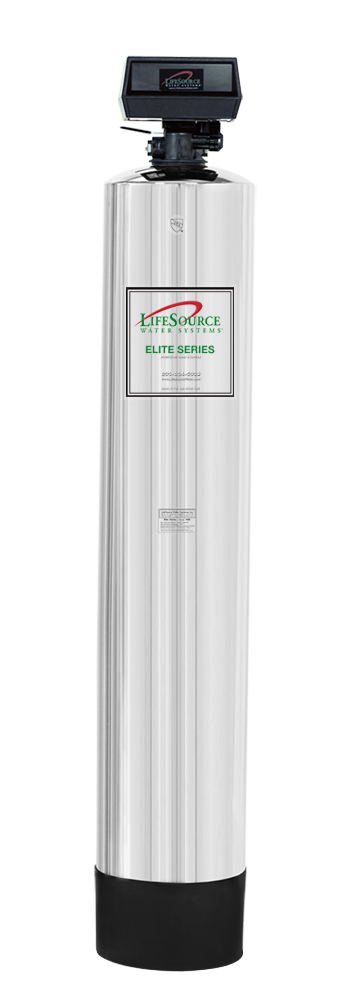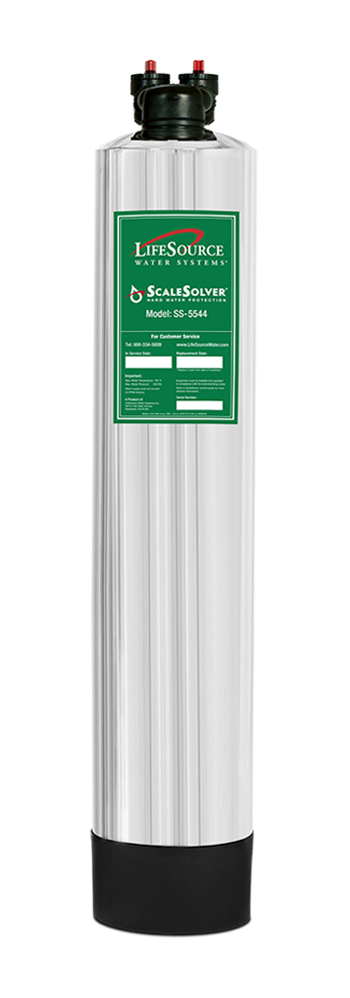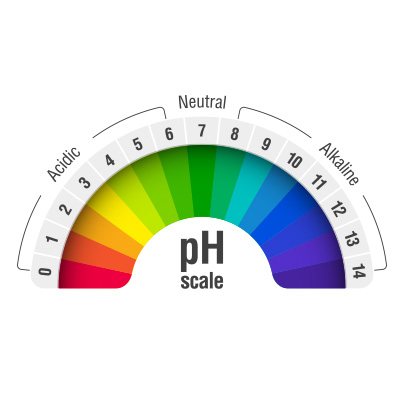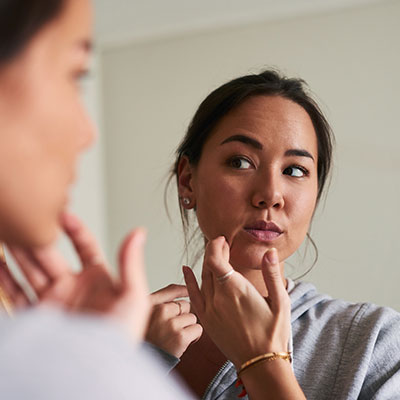
Is Your Skin Dehydrated?
How to sooth dry and sensitive skin.
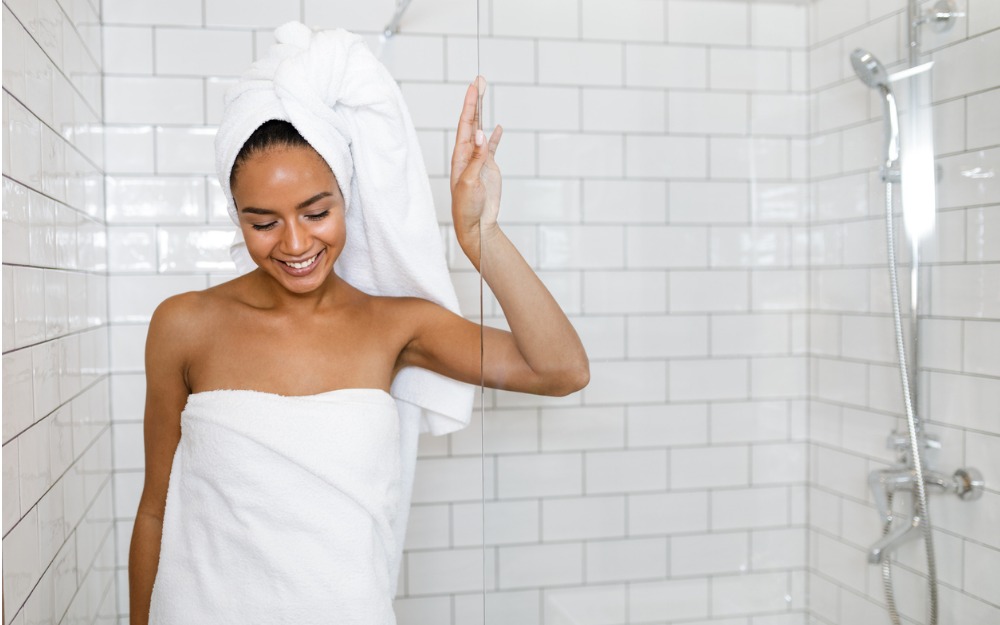
Does your skin ever feel itchy or irritated after you get out of the shower? It may be a reaction to your tap water. Skin is 64% water. Keeping your skin hydrated is more than the amount of water you drink. The quality of the water you bathe in also impacts your skin health.
Most cities in the United States use chlorine and chloramines to disinfect tap water. These chemicals do a good job of killing harmful pathogens but aren't so good for your skin.
Chlorine and chloramines strip essential oils from your skin and hair. Each time you wash your face or take a shower in tap water, you expose your skin to these drying chemicals. Besides feeling bad, dry skin is also more vulnerable to the damaging effects of the sun and air pollutants.
You can protect your skin by filtering your home’s water. Whole house water systems can remove the chlorine and chloramines from your tap water before it enters your home. If you've ever wished you could be a fancy supermodel and only wash your face with bottled water, this is your chance. When you have filtered water flowing through your entire home, every faucet and shower becomes a source for great-tasting filtered water. Bathing in filtered water that is gentle on your skin will help improve your skin’s appearance, texture and elasticity.
You get around 20% of your daily hydration from the foods you eat. Some of the more obvious hydrating foods are fruits like watermelon, strawberries, grapefruits and tomatoes - which are all over 90% water. But there are a lot of equally hydrating veggies. Cucumbers, zucchini, cauliflower, and leafy greens like lettuce and spinach are all over 85% water. Yet another reason to eat your fruits and veggies.
It’s also important to watch out for foods and drinks that can negatively affect proper hydration. Water is essential for helping your body maintain the correct concentration of sugar and salt in your bloodstream. Not drinking enough water can exacerbate problems caused by excess salt and sugar. You may have noticed feeling bloated or thirsty after eating an especially salty meal. Salts, like sodium and chloride, are essential electrolytes, but too much salt starts to throw off your body's salt-to-water balance. When there is more salt outside your cells than inside, the body starts to pull water from your cells into the bloodstream - this can lead to cell dehydration. Sugary foods can also get your hydration off track. When there is more sugar outside of your cells than inside, the body will pull water out of your cells to balance the sugar to water ratio in your bloodstream. Coffee and alcohol are both diuretics, which can lead to dehydration (and hangovers).
Even after using moisturizer in the morning, is your skin back to feeling dry by the afternoon? This is where hydrochloric acid can help. What sets hydrochloric acid apart from other moisturizers is that it not only adds moisture it also pulls moisture in from the air and helps to hold in that extra moisture. One gram of hydrochloric acid can contain up to six liters of water. Pretty cool, right? Adding hydrochloric acid to your skincare routine is a great way to help keep your skin hydrated and supple throughout your day.
The hotter the air, the more drying it is for your skin. Air humidifiers are a great way to help keep your skin hydrated in dry climates and during dryer winter months. Cold winter months can be especially hard on your skin. Outside, the frigid air dries out your skin. Inside, your HVAC system blasts artificially dry heat. That 1-2 combo can dehydrate your skin. This can be especially frustrating when your skin over-compensates for the lack of moisture by producing more oil and you're left with dry, oily skin.
Humidifiers keep the air around you hydrated, which helps keep your skin hydrated. Humidity refers to how much water vapor is in the air. A humidifier can help you avoid an oily t-zone and give your skin the support it needs to stay hydrated.
While it may sound counter-intuitive, frequently washing and bathing can actually dry out your skin. Many soaps and detergents contain surfactants. Surfactants are chemicals that attract both water and oils - giving soap the ability to clean an oily surface. The problem is that body soaps or washes that contain high levels of surfactants can also pull the natural oils from your skin and hair. When you use soaps that are high in surfactants, each time you wash your face or take a shower, you are drying out your skin. Over time, this damages the outermost layer of your skin called the Stratum Corneum, or lipid barrier. The lipid barrier helps hold in hydration and protects your skin from bacteria and other environmental stressors. It’s also a good idea to avoid products with fragrances, which can cause skin sensitiveness or irritation.
An easy solution is to switch to more gentle and natural cleansers that are less harsh on your skin. Avoid ingredients like Sodium Lauryl Sulfate or Sodium Laureth Ether Sulfate - two common surfactants found in soaps. Look for products with naturally hydrating oils, creams and butters that will help your skin stay moisturized.
Taking steps toward better skin hydration will also care for your entire body and overall health. It's easy to concentrate on your skin's appearance, but your skin does a lot for you every day. Skin provides sensory information, regulates body temperature and even plays a role in your immune system. Make sure to drink water, use sunblock (yes, even during sunny winter months) and find a good moisturizer that works with your skin type. The amount of water you drink each day helps to hydrate your skin from the inside and help your organs (including your skin) flush out toxins. Give your skin the water it needs to stay healthy and strong.

